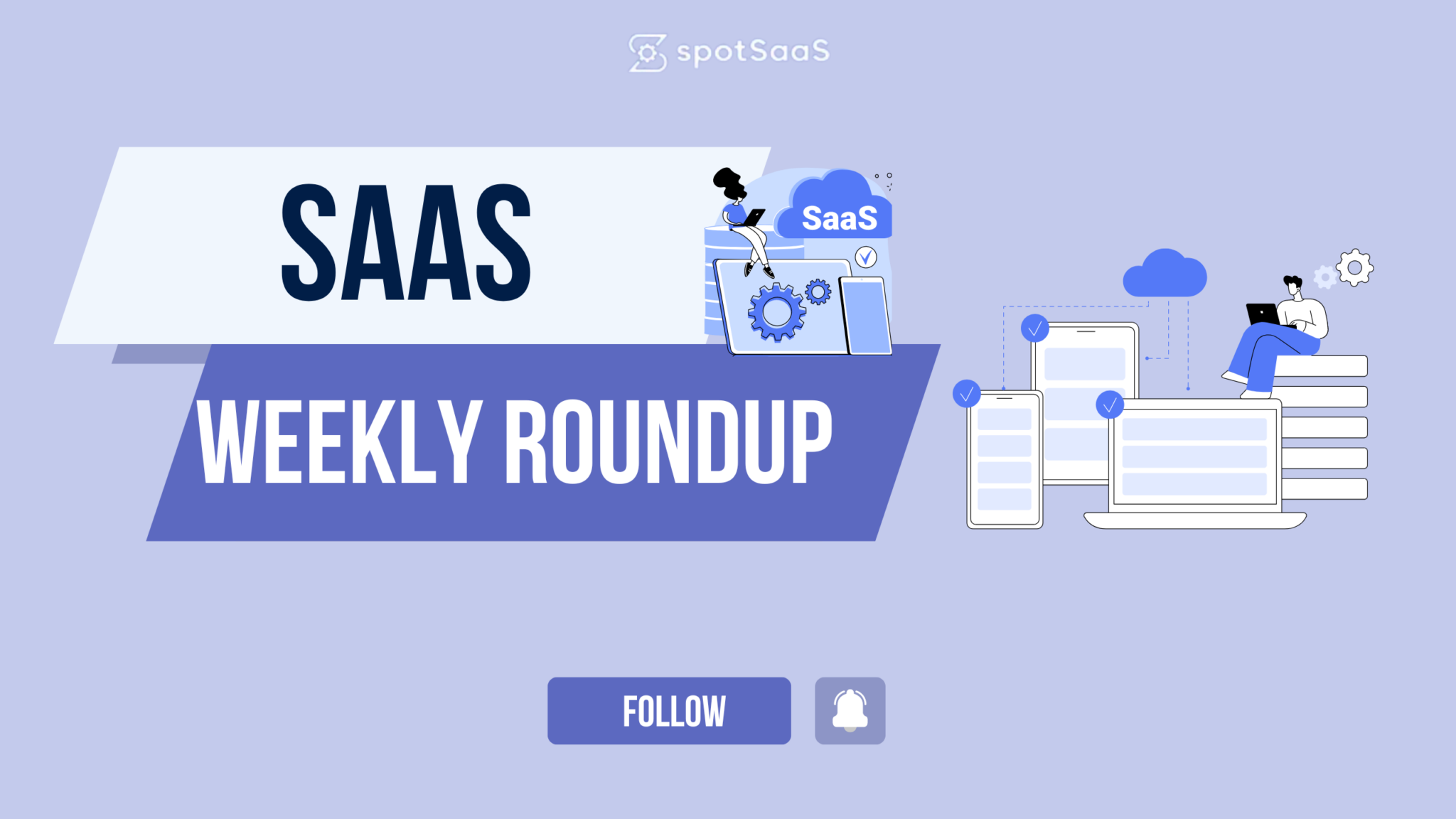What is Site Search Software?
Site search software provides users with search tools for content, products, or information specific to one particular site or application. It makes on-site navigation easy, fast, relevant, and user-friendly. Such tools index website content, analyze search queries, and ultimately deliver results, among many other features like filters, autocomplete suggestions, and predictive search.
This search-empowered site is distinct from regular sites, making sites heavily rely on e-commerce and SaaS platforms, and content-heavy websites experience enhancement, conversion, and customer satisfaction.
Why Use Site Search Software?
The proper site search can differentiate between a frustrated user and a practical browsing experience. Here are some factors
Enhanced User Experience
Everyone loves an Amazon-on-fridge approach to locating content, products, or information. Instead, long browsing creates discontent and a lack of continuity, thus resulting in more visits to a site.
Increased Conversions
Visitors who can find their way around without too much trouble will be encouraged to purchase or take a step closer to an action that is meaningful to them. A fast search for something will reduce frustration with searches and increase conversion rates during visits.
Better Engagement
Personalized search suggestions and filter options prompt users to explore further pages on the site. This creates more extended visits and high interactions, leading to reduced bounce rates and, hence, improved site engagement.
Data-Driven Insights
Site search tools can also track user behavior while searching so that site administrators can identify popular searches, failed searches, and the most converting search terms. The analysis would help optimize the site and inform product, content, or marketing strategies.
Scalability
As your site increases in volume of content and, therefore, complexity, a really good search tool will allow users to effortlessly move across vast amounts of information, keeping up with speed and relevance. This, in turn, accommodates the needs of the user, irrespective of scale.
Best Key Features of Site Search
Software For an effective operation, site search software contains the following features:
Search Indexing
All website content is indexed and organized for real-time search. When a user keys in a query, the result will be fast, accurate, and relevant, regardless of the website’s size and complexity.
Auto-Suggestions & Autocomplete
It predicts and shows search suggestions based on users’ typing. This assists the users in finding the best route to what they are searching for. It helps cut down the typing effort, improves standard semantics, and fastens the process of serving real-time recommendations, thereby increasing the benefits of the search experience.
Filters and Faceted Search
Filters and facets help users narrow their search according to category, price, date, or brand. The users find the result and thus are guided towards the successful locators of what they seek in many results.
NLP
With the help of NLP, a search tool can identify a user’s intent even in the presence of a typo, slang, or synonym. By showing contextually principled results, NLP enhances the overall experience of the user visiting the portal, who will get correct answers without putting them in perfect phraseology.
Personalized Search Results
Machine learning manages the personalization of search results. Machine learning powers the personalization of results to what each singular user would like based on past behavior and viewing history. Customized experiences based on these will likely keep users engaged longer while lowering bounce rates and increasing potential conversions.
Search Analytics
Search analytics are best understood when they show how the users search and the queries that work, fail, and convert. These measures enable companies to refine content and relevance and improve user experience.
Benefits of Site Search Software
Rapid Content Discovery
Site search software enables users to find specific content, products, or information instantly, which would otherwise require hours of browsing. Providing instant, accurate results shortens user frustration and improves site engagement.
Higher Conversion Rates
For e-commerce sites, reducing discovery time ultimately translates into purchase behavior. When customers find something fast, they’re more likely to purchase than leave without, leading to more sales and fewer abandoned carts.
Improved User Experience
Inbuilt features like auto-complete, filtering, and personalized search results give users a seamless journey through the site, which enhances the brand by promoting retention and repeat visits.
Data-Driven Decision Making
GA Analytics provides data on the type of user, the popular search terms, failed queries, and the conversion-driving keywords. Companies could use this data to tweak their product offerings, content strategy, and marketing campaigns.
Lower Bounce Rates
The more users find what they are looking for faster and easier, the longer they stay on the site. Lower bounce rates, increased page views, and an indication of a site with good user experience populate erratically as signs of a very much searched and visited site.
Persona
AI-powered personalization will bring search results that are most relevant to an individual user and analyze previous activities and purchases. Relevant results will boost user satisfaction, brand loyalty, and repeat visits.
Mobile Fantastic
With mobile devices accounting for a large proportion of web traffic, search must be mobile-friendly. Site search software guarantees excellent search functionality on smartphones and tablets, thus improving engagement and visibility.
Types of Software on Site Search
On-Premise Site Search Software
It is installed on the company’s internal servers, thus ensuring complete control over data, privacy, and customization. It’s highly suitable for secure environments since stringent IT resource requirements exist for maintenance, updates, and technical support.
On-premise solutions offer full customization with search logic, user interface, and data handling while ensuring alignment with business needs.
Cloud-Based Site Search Software
It’s software hosted on remote servers, entailing simple installation and scalability with minimal maintenance. It is managed by third-party providers so that all organizations can leverage the cutting-edge features and updates without worrying about IT costs.
Therefore, it is best suited to startups and developing businesses. Fast deployment and automatic updates have enabled companies always to have access to brand-new features.
E-commerce Specific Site Searches Software
This particular software is designed specifically for online retailers. It will help them provide product recommendations, filters, and a unique merchandising feature to enhance product discoverability.
It drives conversions, promotes upselling behavior, and improves the shopping experience, especially for stores with large product catalogs. Features like personalized search, dynamic filters, and product recommendations increase the average order value.
AI-Powered Site Search Software
This software uses artificial intelligence and machine learning-based technology to provide users with personalized intent-based search results. It understands natural language, corrects typos, and predicts suggestions so that users receive search experiences relevant to their particular search.
This dramatically heightens engagement and conversion. AI search recognizes and learns from user behavior, meaning it continues to improve over time by becoming more innovative and relevant.
Top Site Search Software Overview
This is the top-of-the-basket software research table. Algolia provides a fast, AI-powered search mechanism for e-commerce and SaaS. ElasticSearch comes with an open-source customizable search engine for large-scale sites.
Swiftype delivers AI-powered search to B2B and content-rich platforms. Search Spring specializes in personalized e-commerce product search. Site Search 360 offers speedy, cost-effective search for small to medium enterprises.
| Software | Features | Pricing | Use Case | Best For |
|---|---|---|---|---|
| Algolia | Autocomplete, AI-powered personalization | Custom Pricing | E-commerce, SaaS, media websites | Fast and scalable search |
| ElasticSearch | Full-text search, open-source flexibility | Free (self-hosted) | Large websites, developers | Customizable search engine |
| Swiftype | NLP, AI-powered search | Custom Pricing | B2B, SaaS, content-driven sites | Enterprise content search |
| Searchspring | E-commerce merchandising, personalized search | Custom Pricing | E-commerce businesses | E-commerce product search |
| Site Search 360 | Fast implementation, customizable UI | Starting at $99/month | Small to medium-sized businesses | Quick setup for simple sites |
How to Choose the Best Site Search Software
By following this comprehensive framework, you’ll be well-positioned to select site search software that enhances User experience, drives conversions, and supports business growth. Choose a tool that can grow with your business, handle peak traffic, and deliver accurate, relevant results to users.
Define Site Search Software Goals
Before selecting site search software, it’s essential to establish clear business objectives. Defining your goals will ensure you choose software that aligns with your business needs, enhances the user experience, and improves conversion rates.
Clear objectives will help you identify the most critical features for your site search solution and set you up for long-term success.
Key Objectives
Enhance User Experience
Providing users with fast, relevant, intuitive search results enhances the overall user experience. When users find what they’re looking for quickly, it reduces frustration, lowers bounce rates, and encourages longer on-site engagement. Features like autocomplete, error tolerance and search filters make navigation simple and enjoyable for users.
Increase Conversion Rates
Customers are more likely to purchase when they feel confident in their decision. They can easily find their desired products or services. A well-optimized search experience can drive conversions by leading users directly to high-value items.
With features like personalized search results and product recommendations, businesses can increase the chances of upselling and cross-selling products.
Improve Product Discoverability
Product discoverability is essential for e-commerce sites with extensive product catalogs. Users may only sometimes know the exact product name they’re looking for. Advanced filtering, categorization, and synonym recognition allow users to locate products using related terms, increasing the chances of product visibility and encouraging impulse purchases.
Leverage Analytics for Insights
Site search software provides valuable insights into customer search behavior. Businesses can identify gaps in product offerings, adjust marketing strategies, and improve user experience by analyzing popular search queries, no-result searches, and click-through rates.
For instance, if “red sneakers” is a frequently searched term that returns no results, it might be time to stock that product.
Personalize Search Results
Personalized search experiences deliver results based on user history, behavior, and preferences. Businesses can improve engagement and loyalty by showing customers results tailored to their past behavior. Personalization ensures that repeat visitors are met with relevant search results that reflect their unique needs and preferences.
Preferred Site Search Software Models
Site Search Software Models
Basic On-Site Search Tools
These simple search bars index your site’s content to provide basic search results. They are typically included with standard CMS platforms like WordPress or Shopify. Essential tools work well for small websites with limited content but need features like filtering, personalization, and predictive search.
AI-Powered Search Engines
AI-driven site search software uses machine learning and natural language processing (NLP) to deliver innovative, contextual search results. These tools analyze user intent and provide predictive results, autocomplete suggestions, and personalized search experiences. They’re ideal for e-commerce and enterprise-level websites.
Custom-Built Site Search Solutions
Custom search solutions are designed and built in-house or by third-party developers. These tools control entirely the search logic, design, and user experience. Custom-built solutions offer unmatched flexibility but have high development costs and ongoing maintenance.
Which Model is Best?
For Small Businesses
Small businesses should opt for CMS-integrated search tools or AI-powered search engines. These models offer sufficient functionality to meet customer needs while being cost-effective and easy to implement.
For Enterprises
Enterprises handling large product catalogs or complex user queries should invest in AI-driven or custom-built site search software. These options provide robust capabilities like multilingual search, personalization, and scalability, ensuring smooth performance under high traffic loads.
Understand Data Requirements
When choosing site search software, consider how it integrates with your existing systems and handles large datasets. This ensures users get accurate, real-time results and that your internal teams have access to the data they need.
Data Integration
CMS Integration
Your site search software should integrate seamlessly with popular CMS platforms like WordPress, Shopify, Magento, and Drupal. CMS integration ensures that blog posts, product pages, and other site content are searchable in real time as you add new pages.
E-commerce Platforms
E-commerce businesses should choose search tools integrating with platforms like Shopify, WooCommerce, and BigCommerce. These integrations allow for real-time product synchronization, ensuring users can find new and updated products as soon as they’re added.
Analytics and Reporting Tools
Look for site search software that integrates with Google Analytics, Tableau, or Power BI. These integrations allow you to visualize search trends, identify the most popular search terms, and analyze no-result queries to identify potential product gaps.
CRM and Personalization Tools
Integrate site search with customer relationship management (CRM) tools like Salesforce or HubSpot to enable personalized search results for repeat visitors. These tools offer insight into customer intent, allowing you to deliver tailored experiences.
Evaluate Key Features
The right site search software includes features that enhance user experience, improve discoverability, and increase conversions.
Core Features
Customizable Search Bar
The search bar should be customizable regarding placement, design, and color scheme. This ensures it aligns with your brand’s look and feel. A visible, user-friendly search bar increases user engagement and makes searching effortless.
Autocomplete and Predictive Search
Predictive search suggests search terms, products, or content as users type. This feature reduces search time and increases accuracy. Autocomplete can turn partial search queries into successful ones, improving the user experience.
Search Filters and Faceted Navigation
Users can filter search results by price, brand, color, and more attributes. This functionality is essential for e-commerce sites with extensive product catalogs. Faceted navigation helps users narrow down significant result sets into more manageable lists.
Error Tolerance and Synonym Recognition
Users often make spelling errors, so search software should account for this. By recognizing synonyms and correcting typos, search tools ensure users get relevant results even if they mistype their query.
Advanced Features
Personalized Search Results
Personalized search uses past behavior, location, and user preferences to deliver tailored search results. This increases relevance and can lead to higher conversion rates.
Voice Search Support
With voice search on the rise, having site search software that supports voice commands is crucial. Voice search allows users to search hands-free, especially for mobile users.
AI-Powered Recommendations
AI analyzes past user behavior to recommend products or content in search results. Personalized recommendations increase upselling and cross-selling opportunities for e-commerce businesses.
Assess Reporting and Insights
Tracking and analyzing search data helps businesses improve customer experience, reduce failed searches, and identify trends.
Granular Reporting
Look for tools that offer detailed reports on the most-searched queries, most-clicked results, and searches with no results. This insight can help you optimize product offerings and improve site navigation.
Visualization Tools
Dashboards with interactive charts make it easy to analyze search performance. Look for the ability to export data as CSV, Excel, or PDF files for easy sharing with stakeholders.
Pricing Models and Cost Considerations
Pricing Models
Subscription Plans
Pay a monthly or annual fee to access the software and its features. This model is ideal for small to medium-sized businesses.
Pay-Per-Query Pricing
Businesses pay based on the number of search queries processed. It’s a cost-effective model for seasonal or small-scale usage.
Custom Pricing
Large enterprises may negotiate custom pricing based on the number of products, searches, or visitors. These plans often include advanced features and dedicated support.
Check for Scalability
Scalability is essential as your business grows. Ensure that the site search software can handle large spikes in traffic and support global searches.
Key Aspects to Review
Can the platform handle peak traffic during flash sales and holiday seasons?
Does it support multi-department access, allowing your marketing, IT, and product teams to collaborate?
Does it support multiple content types, including product pages, blog posts, and documentation?
Evaluate Support and Training
Good support and training resources make onboarding faster and reduce the risk of errors.
Customer Support
Ensure you can access 24/7 support via live chat, phone, or email. Ask about dedicated account managers for enterprise clients.
Training Resources
Look for training guides, help documentation, and live onboarding sessions. These resources ensure that your marketing, development, and customer support teams are all aligned on how to use the tool.
Conclusion
The most appropriate search software has been selected to deliver a fast, accurate, personalized search experience. The essential features to focus on while selecting are predictive search, natural language processing (NLP), and analytics to track user behavior and optimize content strategy.
Evaluate the tools’ ability to integrate with existing platforms, such as CMS, CRM, and e-commerce systems. Cloud-based and AI-driven solutions typically provide better scalability, personalization, and seamless setup. Free trials or demos assist in evaluating the software’s usability, customization, and support.
Proper site search software enables product discoverability, increases user satisfaction, and grows businesses through fast, relevant, and interesting search results.



